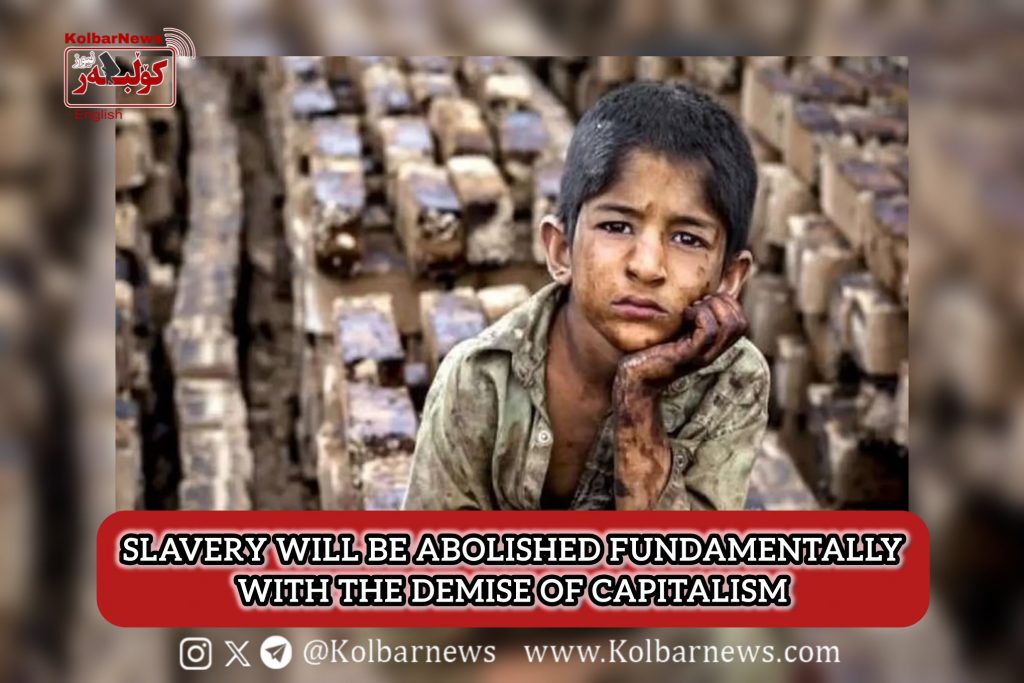
In 1997, UNESCO, the United Nations Educational, Scientific, and Cultural Organization, designated August 23 as the International Day for the Remembrance of the Slave Trade and its Abolition. The UN General Assembly had previously added “International Day for the Abolition of Slavery” to the calendar in 1949, and UNESCO set August 23 as a day to honor the victims.
The slave trade, initiated by colonial Britain in the 15th century in the Atlantic region, quickly spread to European countries and America. By the late 18th century, people began to fight against slavery. Although this inhumane system was officially abolished in the mid-19th century, the UN General Assembly’s resolution showed that slavery had not yet been eradicated. This was due to the formal revival of traditional slavery in capitalist America. Until the first half of the 19th century, slavery was officially the backbone of the American economy. The southern United States was considered the dynamic part of the country’s economy (and its white citizens). More than half of the country’s exports in the first six decades of the 19th century consisted of raw cotton, all of which was produced by slaves. Finally, official slavery in America was abolished in 1865. However, capitalism has maintained slavery in new forms to this day. Some of these forms have been explicit, such as the revival of slavery in Nazi Germany. During that fascist and capitalist regime, government officials forcibly employed millions of Jews, communists, Roma, and prisoners of war instead of the 13 million workers mobilized for the war.
In Pakistan and India, children and other family members were given as collateral to lenders, who would openly exploit them, sometimes chaining them to prevent their escape. One of these child slaves was Iqbal Masih, who was born in 1983 in Muridke, a commercial suburb of Lahore, into a poor Christian family. At the age of four, his parents sent him to work to pay off a 600-rupee loan they had taken from a carpet factory owner. In the factory, Iqbal and other children were forced to work long hours under harsh conditions, chained to the loom. When Iqbal realized that his parents’ debt would not be paid off anytime soon, he broke the chains and escaped at the age of ten. Iqbal launched a determined struggle against the owners of child slaves, who mainly employed them in carpet weaving. He helped 3,000 Pakistani children escape slavery and gave speeches against child labor worldwide. He won several human rights awards and inspired the founding of several child rights organizations, leading to the closure of several carpet factories that used child slaves. Eventually, slave owners assassinated him in 1995 at the age of twelve in Pakistan.
Later, some Islamic terrorist groups like ISIS captured women as spoils of war, selling them in markets by relying on Quranic verses. Other Islamic terrorist groups also enslaved men alongside women, selling them in Libya’s slave markets. However, modern slavery also exists in more concealed forms.
According to definitions provided by the International Labor Organization (ILO) and other international bodies, modern slavery includes “forced labor,” “forced marriage,” “child labor,” “prostitution,” or any other form of forced service, as well as “human trafficking.” Based on this understanding, the human rights organization Walk Free estimates that there are around 50 million modern slaves worldwide. However, some researchers have documented that millions of children around the world, especially in Africa and Asia, work for renowned international corporations, effectively as slaves.
In the Islamic Republic of Iran, according to fatwas by some clerics like Mesbah-Yazdi and his followers, as stated in the Quran and Islamic tradition, slavery is permissible. This slavery is more visible in child labor, child marriage, forced marriage, and prostitution. However, domestic work within the family also practically turns children, especially girls, into slaves.
The capitalist system is the creator and sustainer of modern slavery in all its forms. The exploitation of new slaves has become a business with hundreds of billions of dollars in profits, and no government has been able to abolish it through legislation. Therefore, it can logically and analytically be concluded that modern and traditional slavery will only be fundamentally abolished with the demise of capitalism.

